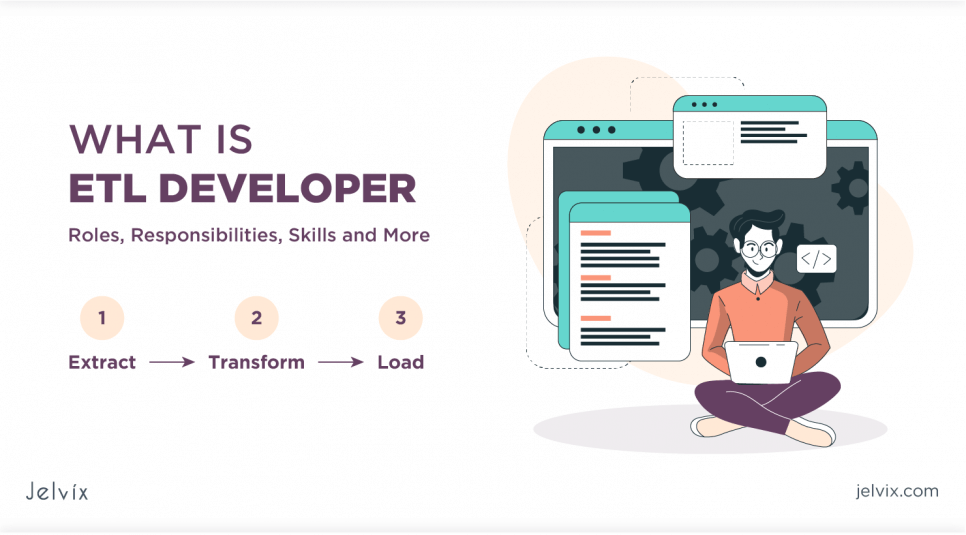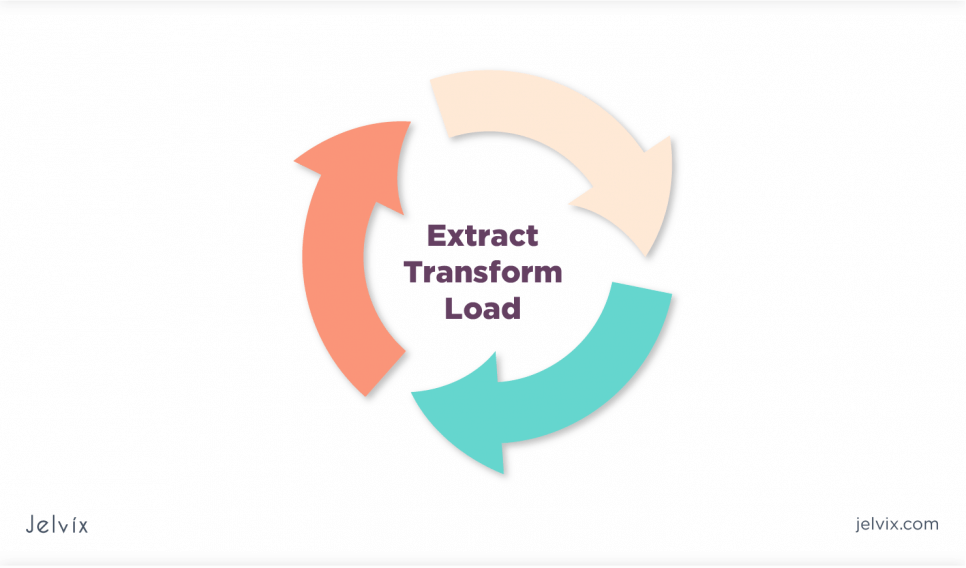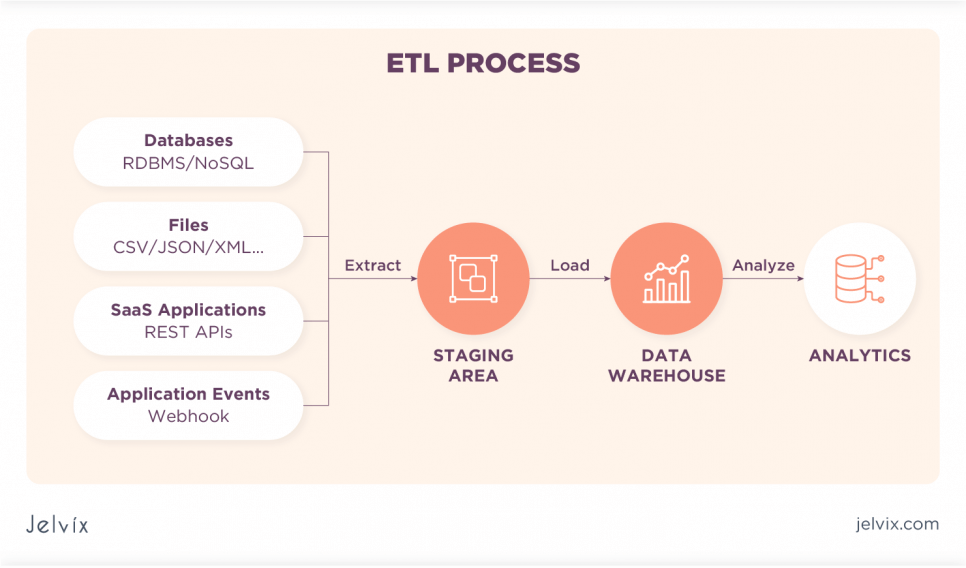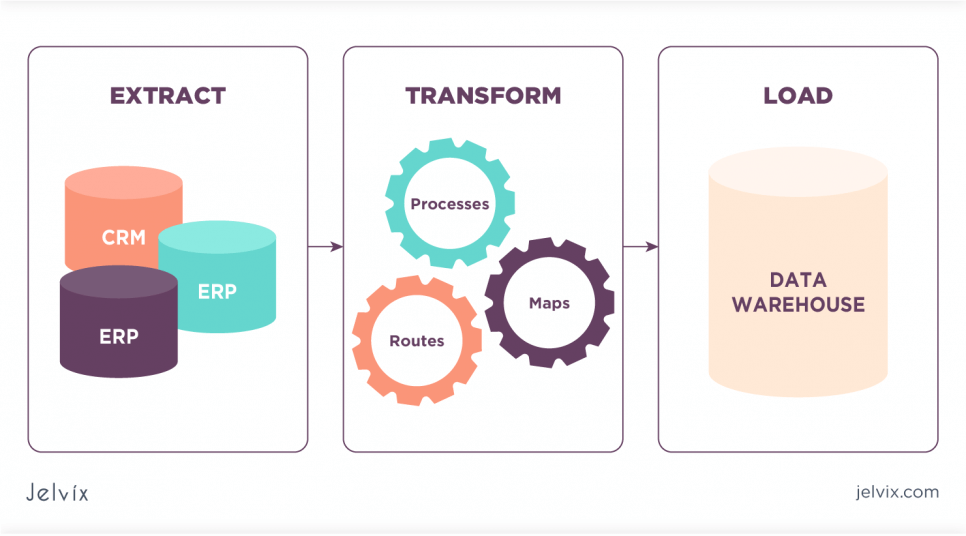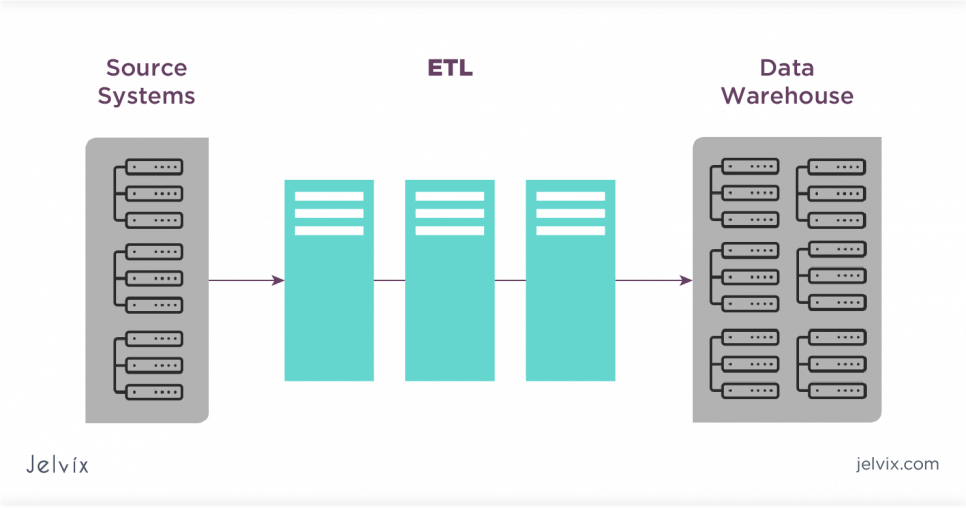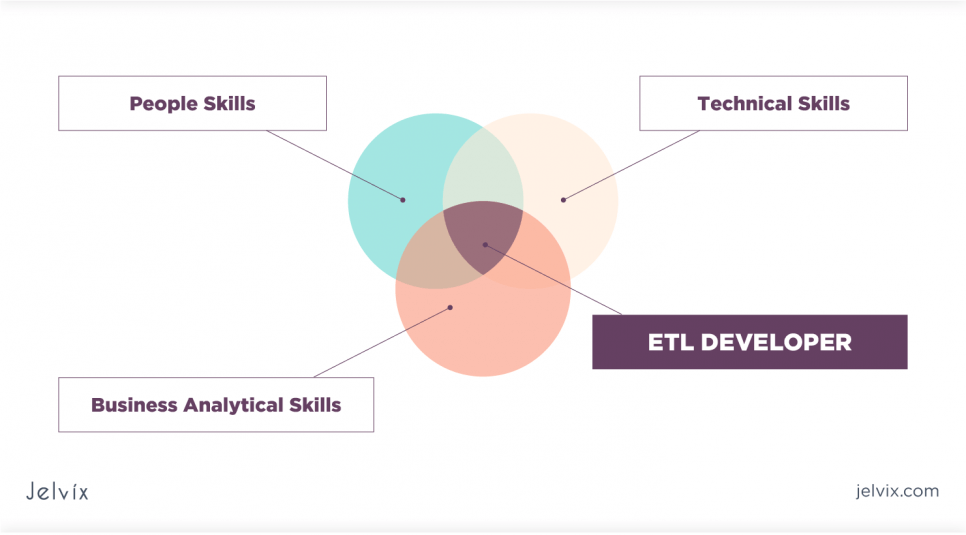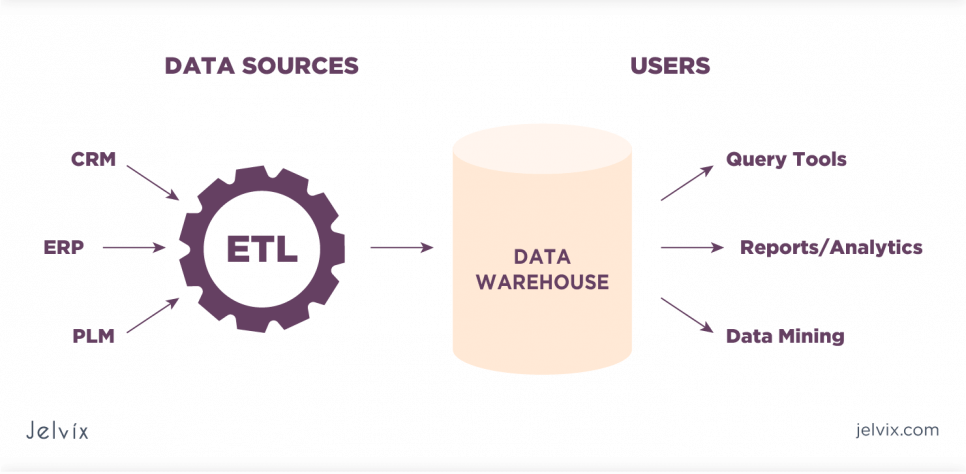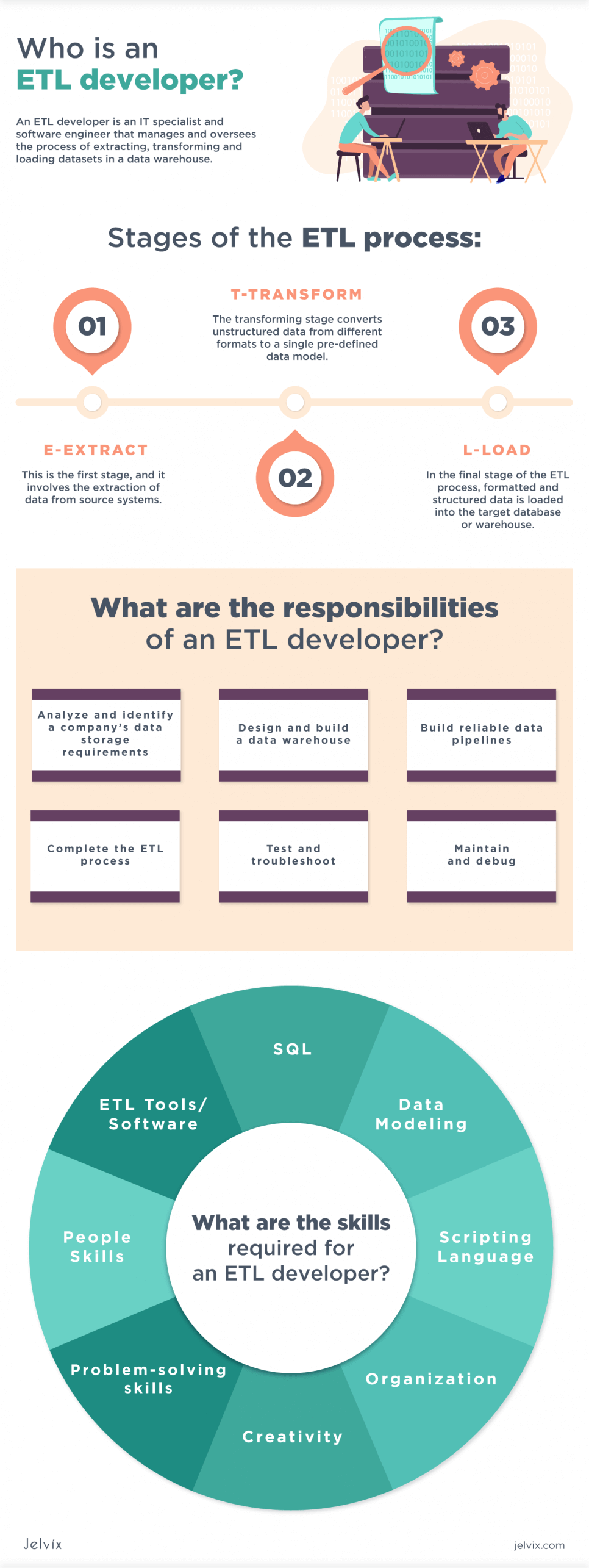Data is an incredibly valuable asset in today’s business world, and, every day, businesses collect large amounts of data from different sources. Yet, despite how important data is, it’s practically useless without proper management.
Whether raw or structured, data has to be subjected to a number of processes in order to harvest the invaluable information buried within. To make sure data makes sense and is prepared for the much-needed analytics, it first has to undergo the ETL process, which an ETL developer performs.
ETL is the process of transforming raw and unstructured data into structured and easily manageable so that important, meaningful, and insightful information can be extracted and used later. This process essentially prepares data for further analysis by an analyst or data scientist.
In this piece, we discuss the professional roles of ETL developers, including their responsibilities and unique skill set.
What is ETL?
ETL is an abbreviation that stands for Extract, Transform, and Load. It essentially describes a 3-stage process that involves the extraction and movement of data from various sources to a specially designed data warehouse for proper and secure storage.
ETL is a process performed by IT specialists, which allows ETL software developers to extract data from different database management systems, transform it, and finally load it into a warehouse they’ve built.
This sounds quite simple, but it requires a combination of highly specialized technical skills, creativity, and soft skills. This process is a very important aspect of business intelligence, and it helps prepare data for analytics. Let’s take a closer look at each stage of the ETL process.
“E” -\— EXTRACT
This is the first stage, which involves the extraction of data from source systems. Every day, businesses collect vast amounts of data. This information is usually collected and stored in different formats and systems, including spreadsheets, SQL servers, CRM, ERP, third-party systems, etc. Here, the developer identifies various data sources and methodically extracts the required data from them.
“T” – TRANSFORM
Extracted data usually comes in different formats. Therefore, it has to be cleansed and transformed into a single structured format. The transforming stage converts unstructured data from different formats to a single pre-defined data model. This process will often involve interpretation, filtering, cleaning validation, and standardization of datasets.
“L” – LOAD
In the final stage of the ETL process, formatted and structured data is loaded into the target database or warehouse. Usually, the data warehouse is specially designed and built by ETL developers according to an organization’s specific data storage requirements.
This process is not a simple “copy-and-paste” method because, most times, large amounts of data will have to be loaded within a quite short time. Loading data into a warehouse often involves complex procedures that require constant monitoring to ensure the process runs smoothly.
Who is an ETL Developer?
An ETL developer is an IT specialist and software engineer that manages and oversees the process of extracting, transforming, and loading datasets into a data warehouse. Developers are tasked with gathering and processing data into a unified format and standard, and, subsequently, loading this data into a warehouse they have built.
Besides preparing structured and formatted data for analytics, another very crucial role of the ETL developer is to design, build, test, and monitor data management systems, especially data warehouses. In BI and big data analytics, data warehouses are the most common type of databases because they are specially designed for the purpose of reporting and analytics.
As IT specialists, ETL developers are well-versed in several programming languages with expert design skills and a handle on useful ETL tools for providing appropriate solutions to data-related problems. They are able to build data warehouses, perform tests and troubleshooting processes, as well as to debug and maintain warehousing systems.
ETL developers are also experts at performing a wide range of data-related processes, including data manipulation, validation, integration, standardization, conversation, wrangling, migration, warehousing, etc. The ETL process is an important part of big data processing and business intelligence, and ETL developers play key engineering roles in BI-related projects.
Let's discuss data warehouses’ purpose, examine the difference of database vs data warehouse, and explain how to set up and manage one.
What are the Responsibilities of an ETL Developer?
ETL developers are usually a part of data engineering teams. They are majorly responsible for providing solutions to problems relating to data storage systems. An ETL developer will analyze and study the company’s data and then decide how to manage it best in order to increase its usability.
ETL developers basically collect raw data and transform it into easily manageable forms to perform analytics. The ETL developer job description consists of a range of duties which primarily involve the following:
Analyze and identify the company’s data storage requirements: the first task of an ETL developer is to analyze and understand the data situation of the organization they are working for. A clear understanding of the data size and type will enable the developer to determine the storage requirements and implement the best approach to data storage.
Design and build a data warehouse: an ETL developer is also responsible for designing and building data warehousing systems to store the data safely and securely. Once the developer gets a clear picture of the data storage requirements, they can proceed to design and build a warehouse to house the information.
Build reliable data pipelines: data pipelines are a series of data processing steps that enable the transfer of data from one storage source to another. These pipelines create a seamless flow of data from their original source to a target data warehouse. ETL developers are responsible for building and maintaining data pipelines.
Complete the ETL process: the ETL developer is also tasked with extracting data from their original sources, transforming it into a new format, and loading it into the new data warehouse.
Test and troubleshoot: the job doesn’t end with building new data storage systems; the ETL developer also has to ensure that the systems are running smoothly without friction. They will have to test, troubleshoot, and provide the necessary maintenance support.
Maintain and debug: lastly, an ETL developer is also responsible for debugging and rectifying any problems that arise with the data storage systems they built.
What are the Skills Required for an ETL Developer?
To succeed as an ETL software developer, you need a wide array of both technical and soft skills. ETL developers have to complete many complex data-related processes which require unique technical skills; however, they also have to work with teams and communicate with CEOs, business managers, colleagues, and teammates.
And if they have to lead their own team, it will require good leadership skills. Here are 8 essential skills every ETL developer should have.
-
ETL Tools/Software
To complete ETL processes, software developers have to rely on ETL tools and software. With these tools, an ETL developer can simplify the cleaning and processing of complex data from different sources. These tools are also essential for automating the transformation and consolidation of data. Talend, Informatica, and Pentaho are some of the most common ETL tools that ETL developers find very useful.
-
SQL
Expert knowledge of SQL (Structured Query Language) is essential in data-related fields, and ETL developers are not excluded. Often, ETL developers will be required to work with SQL for data mapping, modifying databases, or performing a wide range of other data manipulation tasks. Therefore, a good level of SQL knowledge is absolutely a must for ETL.
-
Data Modeling
Part of the responsibilities of an ETL developer is to read, analyze and transform data. This will enable the developer to determine the format for representing the information in a data warehouse. This process is known as data modeling, and it’s a crucial skill in ETL because the data modeling process defines how the data will be transformed.
-
Scripting Language
There are ETL tools for completing ETL processes; however, there will be instances when the developer will require something that is unique and meets the specific needs of the process. Here is when scripting languages come in. And to increase efficiency, an ETL developer should be able to use Python, Pearl, or Bash to write an ETL code in order to adjust or automate certain processes.
-
Organization
Organization is very important for software developers in general because they have to juggle different tasks. For an ETL developer who wants to stay productive, developing and maintaining an excellent organizational standard will prove to be very beneficial. Having an organized and structured work smoothens workflows and helps with debugging.
-
Creativity
ETL developers are sometimes given a Source-to-Target-Mapping template, which is basically a set of instructions on how to convert a data structure in a source system to a predefined structure for storage in a target database. But, sometimes, a developer will be required to think outside the box and come up with original ideas on how to solve data-related problems, which will require a good level of creativity to pull off.
-
Problem-Solving Skills
Problems also spring up in development jobs; in fact, you may need to revisit and tweak your plans every step of the way. Being an effective problem solver is often a part of an ETL developer’s job description because businesses that deal with tons of data depend on the success of ETL frameworks and systems to stay up and running.
-
People Skills
ETL developers generally do not work in isolation; they usually work in data engineering and development teams. Besides teammates, they will also be in constant communication with business owners. Therefore, they require good people skills such as excellent communication for delivering clear instructions and assessing feedback.
FAQs on ETL
- What does ETL stand for?
This is a 3-stage process that can be summarized as follows:
- Reading and extracting data from different source systems
- Transforming or converting them into a single predefined standard structure
- Loading the structured data into a new data storage system.
- Is ETL a good career?
Yes, ETL is a good career. Every day, businesses collect vast amounts of data from different sources. These continuous data streams need to be carefully managed to leverage their potential and gain insights for business growth.
The extraction, cleaning, transporting, conversation processes that data has to undergo before it can be made available for useful analytics is what the ETL developer is responsible for.
And this is an almost indispensable job in today’s data-driven business world. According to the Bureau of Labor Statistics, demand for Data Administrators, including ETL developers, is expected to increase by 11% through 2024.
- How much do ETL developers earn?
ETL developers earn very decent salaries. In the United States alone, the salaries of ETL Developers fall within $33,418/year on the lower end to $166,400/year on the high end. And on average, ETL developers earn about $73,000. This shows that there are many opportunities for different skill levels and years of experience.
- Why is ETL important in big data?
The ETL process is very crucial because it prepares data for analytics. This process is essentially the conversion of data to structures that are easily manageable and analyzed. This makes the work of a data scientist, who will then be working with this data, much easier and faster.
The real potential of data can only be leveraged when it undergoes analytics, and the process of data analytics is made a lot easier by ETL technologies.
Big data analytics cannot be done without the work of an ETL developer, and here are some of the key reasons why ETL is indispensable in big data analytics:
- It improves the quality of and integrity of data, makes it more manageable and easy to understand, analyze, and benefit from;
- It provides timely access to data for quick and precise analytics, which provides actionable data-driven insights for real business growth;
- Access to quality data also enables quick data integration, which boosts efficiency and productivity for data management teams.
- Where do ETL developers work?
Any company that works with considerable amounts of data will need the skills of an ETL developer in their data engineering team. ETL developers can also work with IT and consulting companies that provide businesses with big data analytics, data management, and business intelligence.
ETL developers can also work as independent contractors to multiple firms that need their unique skill sets. Therefore, there are fantastic opportunities for ETL developers. Each new year brings more opportunities and job openings for software engineers and database administrators with ETL skills since, nowadays, the amount of data online is only growing tremendously.
- How can you become an ETL developer?
Becoming an ETL developer is not really as straightforward as some other roles. However, it’s important that you have at least a Bachelor’s degree in Information Technology, Computer Science, or some other related physical sciences. However, this is only the first step.
The actual qualifications that can guarantee you a job role as an ETL developer are: having the required technical skills; being able to efficiently write computer programs, master ETL tools/software, and develop the practical skills required to complete actual ETL and data-related projects.
Apart from strong technical background, this position requires strong soft skills: good communication, teamwork, creativity, and problem-solving skills – these all are also desired and sought-after qualities of ETL developers.
- Are data architects different from ETL developers?
The job roles of the data architect and the ETL developer may seem to overlap because they are both obviously part of a data engineering team. However, the data architect and ETL architect do have very distinct job roles and responsibilities.
While ETL developers work solely on extracting data from varied sources, transforming them into a different format, and loading them into databases, data architects are majorly responsible for creating the blueprint of complex data management systems that the data engineers will develop.
They define how the database will be built, used and maintained, to ensure that they remain secure and useful. Data architects also define how the data should be stored, integrated, and managed by different systems.
- What is the difference between SQL and ETL developers?
Businesses that collect large amounts of data and engage in data manipulation and analytics often employ the skills of both SQL and ETL developers. The SQL and ETL developers are both heavily involved in processing and managing data/databases.
But the difference between the two is that an SQL developer has expert knowledge of the SQL programming language while the ETL developer is highly experienced with the ETL process.
SQL developers are responsible for creating SQL databases, ensuring reliability and performance. They also write queries and applications to interface with databases using SQL programs.
Wrapping Up
Collecting data is easy, but putting it to good use is where the challenge lies. The ETL process is the first step towards making data useful, and since it’s a very complex process, it requires very technical and highly specialized skills. An ETL developer with a solid technical background is an integral part of any business that values data and relies on data-driven business decisions for growth.
Need a certain developer?
Access top talent pool to reach new business objectives.


